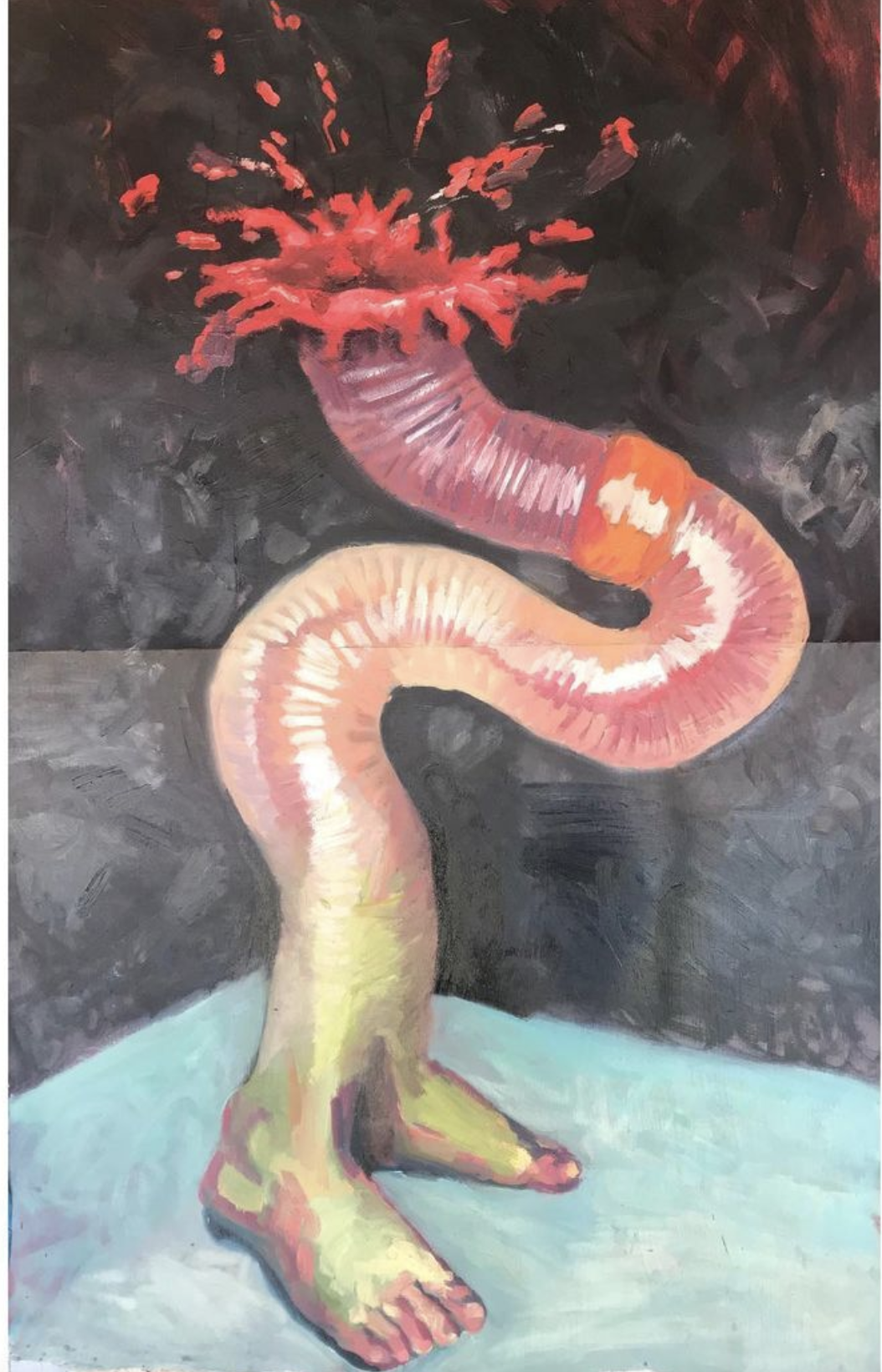10 Essential Weasel Montgomery Jones Records

Columbia Records will be releasing the complete discography of singer/songwriter Weasel Montgomery Jones on all streaming platforms this coming November. The release consists of all of WeaselŌĆÖs recorded material throughout his nearly six-decade career. Releasing over 40 albums and several more collaborations, WeaselŌĆÖs style evolved from the Greenwich Village folk sound of the early 1960s and morphed into several genres, including punk, spoken word, ambient, disco, reggae, and metalcore. His final album, Greebo Gabba Goo, was released before his supposed alien abduction in 2015 (the aliens, of course, denied this). The C.I.A, through the power of 5G Internet towers, erased all memory of Weasel. It wasnŌĆÖt until last week that our memory returned, just in time for the new release!
To celebrate this momentous event in music history, IŌĆÖve selected 10 records that best exemplify the genius, virtuosity, madness, and creativity of Weasel Montgomery Jones.
Weasel Sings the Blues (1963) - Weasel was born Weasel Montogemery Szyma┼äski in Colorado sometime in the early 1940s. (His exact birth date remains a mystery, with many skeptics claiming he was never actually born.) A popular performer in the Greenwich Village folk scene, Weasel was known for his unique style of guitar-playing. To quote Bob Dylan, a contemporary of Weasel, ŌĆ£he could not play guitar to save his life. IŌĆÖve tried teaching him many times, but the poor guy is completely tone-deaf.ŌĆØ WeaselŌĆÖs first LP consists mostly of cover songs, including horribly out-of-tune renditions of ŌĆ£House of the Rising SunŌĆØ and ŌĆ£Man of Constant Sorrow.ŌĆØ Weasel wrote the album's sole original track ŌĆ£Paper BluesŌĆØ during a period of paranoia when he thought Joseph McCarthy was stealing his newspaper.
The Mysterious Walrus-Head Man (1966) - By the time Weasel had released 6 albums with Columbia, Folk was going ŌĆ£electric,ŌĆØ Beatlemania was in full swing and Communism was the hottest new trend. Weasel conceived his experimental double-LP after accidentally falling face-first into an unoccupied plate of LSD. He composed and recorded the album within the span of an afternoon. According to Weasel, the concept for the record came from a dream in which an 8-foot-tall muscular man with a walrus head offered Weasel gardening advice. The album was shelved for being ŌĆ£not Marxist enoughŌĆØ and Weasel was eventually dropped from his label.
I Go Where the Seaweed Takes Me (1973) - After briefly touring with Frank Zappa and getting punched in the face by James Taylor, Weasel retreated to a cabin in Montreal and began writing lyrics for his 14th album. Influenced by the works of saxophonist Lee Morgan and marine biologist Jacques-Yves Cousteau, Weasel sought to create a jazz-fusion concept album about different species of sea sponges. One of his most personal records, the album includes the harrowing 8-minute ballad ŌĆ£I Knew it When I Saw It.ŌĆØ The song was reportedly inspired by an argument with WeaselŌĆÖs then-wife Raquel Welch over who played Spartacus in the 1960 film.ŌĆ£It was Steve McQueen,ŌĆØ he would later comment, ŌĆ£and you canŌĆÖt convince me otherwiseŌĆØ
Apoptosis - 1st Movement (1975) - This album consists of 80 minutes of Weasel screwing around with his guitar without realizing the tape was still running. Rolling Stone gave it 5 stars out of 5.
The King Who Would Be Man (1977) - WeaselŌĆÖs most expensive album, recorded during the peak of his addiction to cocaine and paint thinner, is a concoction of R&B, jazz, and 1700s sea shanties. ŌĆ£We were so drugged out of our minds,ŌĆØ session musician Roy Bittan said, ŌĆ£we forgot we had even made the album and recorded it a second time.ŌĆØ
The Sun is Actually a Moon (1980) - Following a messy divorce with Ethel Merman, Weasel sobered up, worked part-time as a janitor at the local YMCA, and released his gloomiest record. The first half of the record contains atmospheric covers of old jazz standards (with the exception of a down-tempo version of Rick DeesŌĆÖ ŌĆ£Disco DuckŌĆØ). The second side consists of a single 23-minute track called ŌĆ£Eggs?ŌĆØ where he recites the entire Breakfast at TiffanyŌĆÖs script over a long, droning synth chord.
Music from Hamburger Heaven (1987) - Weasel composed his first movie score for Italian director Chez FortunatoŌĆÖs fantasy romantic comedy. The plot of the film revolves around a fry cook who dies in a grease fire and tries to escape from heaven. The movie was a box-office bomb and was banned in Switzerland. Discussing his inspiration for the soundtrack, Weasel said, ŌĆ£I wanted to do something with middle school marching bands.ŌĆØ His label eventually sued Weasel for making ŌĆ£unrepresentative music,ŌĆØ and he was subsequently banned from any middle school pep rally in the Northwest region.
Gadzooks!!! (1991) - In his first foray into the metal genre, Weasel performed alongside British grindcore group ANUS. ŌĆ£Weasel loved the grinding sound of his coffee maker.ŌĆØ bass-player Mark Fuck said, ŌĆ£he told the band ŌĆśsound exactly like that.ŌĆØ The album contains 44 tracks, with a total runtime of 11 ┬Į minutes.
The Planets (2005) - WeaselŌĆÖs first album since his yeast infection is his most ambitious. Inspired by a sexual fantasy about Carl Sagan, the album grapples with concepts of mortality, time, spirituality, and the cosmos. The 11-minute opening track features cinema legend Peter OŌĆÖToole reciting Dylan Thomas, backed by a massive six-string orchestra. The album earned widespread critical claim, as well as a restraining order from NASA.
Greeba Gabba Goo (2015) - WeaselŌĆÖs first album since his ŌĆ£retirementŌĆØ in 2013 (in which he released his ŌĆ£final'' album ThatŌĆÖs it. IŌĆÖm Done. No More. IŌĆÖm Serious This Time), this triple-LP can only be described as ŌĆ£beyond music itself.ŌĆØ It confused fans, puzzled critics, and angered dogs. Several instances of wild bird attacks were reported following the albumŌĆÖs release, although thereŌĆÖs little evidence supporting the correlation between the two. Weasel mysteriously disappeared two days after the albumŌĆÖs release, causing the C.I.A to erase everyoneŌĆÖs memory of him. The album will be locked in a vault until 2110.
POST A COMMENT
See Also
Want to read more news? Click here for a random article.


